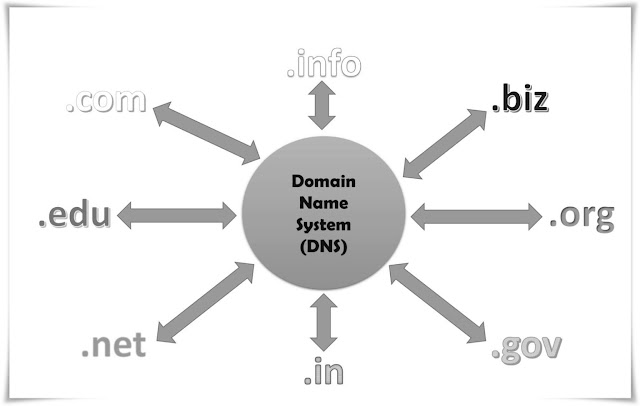When you want to go to someone’s website, you simply type in the web address or URL of the website into your web browser or click on a link that takes you directly to that website. That takes you inside the domain name system or the DNS for short. DNS was created as hierarchical name resolution system that is distributed across servers located around the world. The DNS uses a unique string of numbers called IP (Internet Protocol) addresses to make the connection. But we don’t need to remember so many IP addresses; instead, we can use easy-to-read domain names. For example, let’s say the IP address for Microsoft’s website is 192.0.a.b, but the website’s domain name is “microsoft.com”, which is much easier to remember. So, for this purpose DNS was created to translate IP addresses into easy-to-remember addresses called domain names. A host name is typically the name of a device that has a specific IP address.
What is Hostname?
A hostname is basically a nickname of a computer or any device connected to a computer network and that has a specific IP address, which is the numerical address or location of the web server. Just like a name is used to identify a person, a place or a thing, similarly computers need names to differentiate one machine from other machine. For computers, these names are called hostnames. These are human-readable labels that are used to identify a particular system. On the Internet, the hostnames are part of what is known as a Fully Qualified Domain Name (FQDN) that is unique across the Internet. Individual computers exist within a domain and each computer in the domain has its own hostname. For example, consider two hosts Huey and Louie are connected to a network called Scrooge. So, if Huey want to communicate with Louie then it will only search of the label ‘Louie’ and not the whole domain name.
What is Domain Name?
To complete the FQDN, you need both a hostname and a domain name. In fact, the combination of a hostname and a domain name creates the FQDN. In reference to the Internet, a domain name is your website’s address that is equivalent to a physical address. It is one of the pieces inside of a URL used to access a website. Domain names are basically created to make IP addresses more human-friendly. These are the most easily recognized part of the IP address. An IP address is a unique string of numbers assigned to every computer on the web. IP addresses are like street addresses that are used to identify locations of the computers connected to a network and help route information so that we can easily travel between computers. This process of finding the IP address for any given hostname is known as name resolution.
Difference between Hostname and Domain Name
Meaning
– A hostname is basically a nickname of a computer or any device connected to a computer network and that has a specific IP address. A hostname is the name of a computer or any device connected to a network. A domain name, on the other hand, is similar to a physical address used to identify or access a website. It is the most easily recognized part of the IP address that is required to reach a network from an external point. The combination of a hostname and a domain name creates what is known as a Fully Qualified Domain Name (FQDN).
Function
– Hostnames are human-readable labels that are used to identify a particular system and are often used to distinguish one device from another on the web. A hostname is basically a domain name assigned to the host. It’s a human-readable nickname that corresponds to a unique network hardware MAC address. The term hostname is often used interchangeably with domain name, but there are subtle differences between the two. All hostnames are domain names, but not all domain names are hostnames. Domain names are basically created to make IP addresses more human-friendly.
Structure
– Consider a device with a hostname of “myhost” and a domain name of “example.com”, the fully qualified domain name is “myhost.example.com.” It uniquely defines the device – whilst there can be man hosts in the world called “myhost”, there can only be one “myhost.example.com.” Hostnames, like all domain names, are made up of a series of labels, and each label is separated by a dot. Each label must be between 1 and 63 characters long, with a maximum of 255 characters when all labels are combined.










0 comments:
Post a Comment